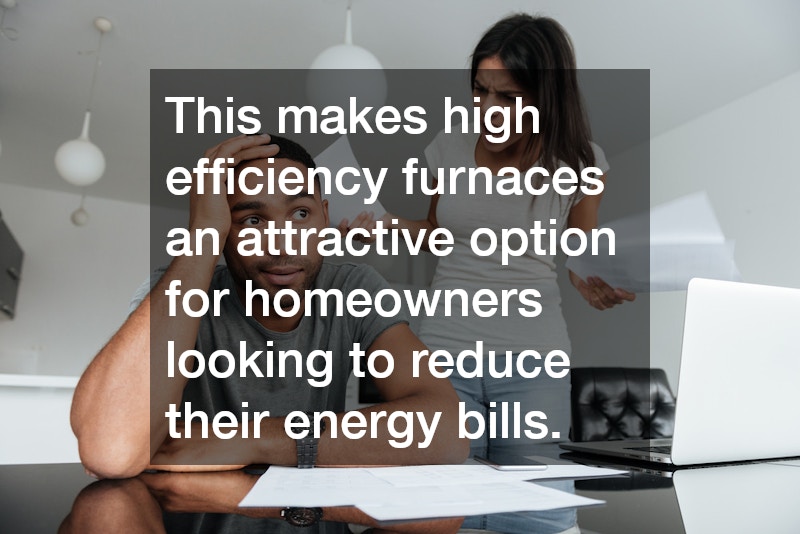High efficiency furnaces are designed to maximize energy output while minimizing waste. They achieve this through advanced technology and design improvements such as sealed combustion and multi-stage heating. The result is a furnace that uses less fuel to produce the same amount of heat as traditional models.
This makes high efficiency furnaces an attractive option for homeowners looking to reduce their energy bills. In places with harsh winter climates, the potential for savings can be significant.
The initial cost of purchasing and installing these furnaces is higher, but can be offset by long-term energy savings.
In addition to cost savings, high efficiency furnaces are also environmentally friendly. By consuming less fuel, they produce fewer emissions, contributing to a reduction in the homeowner’s carbon footprint. These advantages make them a compelling choice for those who are environmentally conscious.
Calculating the Financial Benefits
When considering a high efficiency furnace, it’s important to evaluate the financial benefits. The efficiency of a furnace is measured by its Annual Fuel Utilization Efficiency (AFUE) rating. High efficiency furnaces typically have an AFUE rating of 90% or higher.
This means that they convert over 90% of the fuel they use into heat, as opposed to less efficient models that convert 70-80%. By upgrading to a high efficiency furnace, homeowners can expect to save on their energy bills. Over time, these savings can amount to hundreds of dollars annually, justifying the initial furnace installation costs.
Another aspect to consider is the potential increase in property value. Homes equipped with energy-efficient systems tend to have a competitive edge in the real estate market. This can provide a financial return beyond the immediate utility bill savings.
Environmental Impact and Sustainability
Switching to a high efficiency furnace has a positive impact on the environment. Because these furnaces use fuel more efficiently, they produce less pollution. This is particularly important in regions where air quality is a concern.
High efficiency furnaces often qualify for government rebates and incentives, further compensating the cost of furnace installation. These programs are designed to encourage the adoption of energy-efficient technologies. By taking advantage of such programs, homeowners not only save money but also support environmental sustainability efforts.
Additionally, some high efficiency models are compatible with alternative energy sources such as solar panels. This opens up possibilities for even greater reductions in carbon emissions. As more homeowners adopt these technologies, the cumulative impact on the environment can be substantial.
Maintenance and Longevity
High efficiency furnaces require regular maintenance to ensure they operate at peak performance. Routine inspections help to extend the life of the furnace and prevent costly repairs. Dust accumulation and filter clogs can reduce efficiency, so regular cleaning is essential.
Most high efficiency furnaces come with comprehensive warranties that cover parts and service, providing peace of mind. However, because of their complex technology, repairs may be more expensive if they fall outside warranty coverage. This makes regular maintenance even more critical to avoid unexpected expenses.
The longevity of high efficiency furnaces can also contribute to their overall value. With proper care, they often last longer than traditional furnaces. This extended lifespan can further justify the initial investment, adding to the advantages of choosing a high efficiency furnace.
Conclusion: Are They Worth the Investment?
Deciding whether a high efficiency furnace is worth the investment depends on various factors. Homeowners must consider their climate, budget, and long-term goals. In areas with cold winters, the energy savings can be significant.
The benefits of lower utility bills, environmental impact, and potential property value increase should be weighed against the upfront costs of furnace installation. For many, the long-term savings outweigh the initial investment, making high efficiency furnaces a smart choice. It’s advisable to consult with a professional to assess individual needs and capabilities before making a decision.
In conclusion, while the transition to a high efficiency furnace involves initial expenses, the eventual benefits in terms of cost savings, environmental responsibility, and property value enhancement make them an appealing option. With advancements in technology, these furnaces continue to improve, offering even greater efficiency and sustainability. For those looking to invest in their home’s heating system, high efficiency furnaces are definitely worth considering.
.

